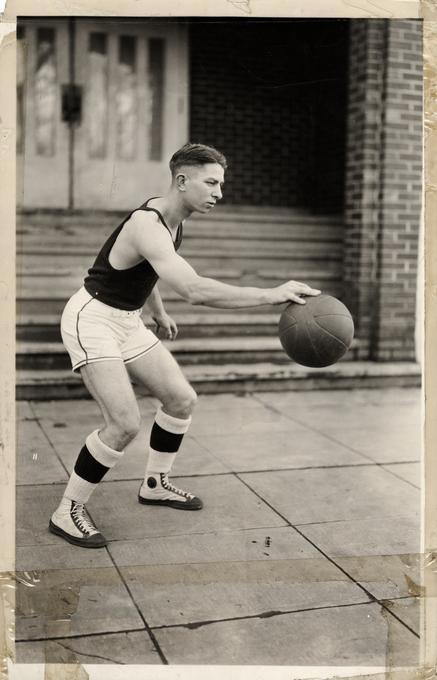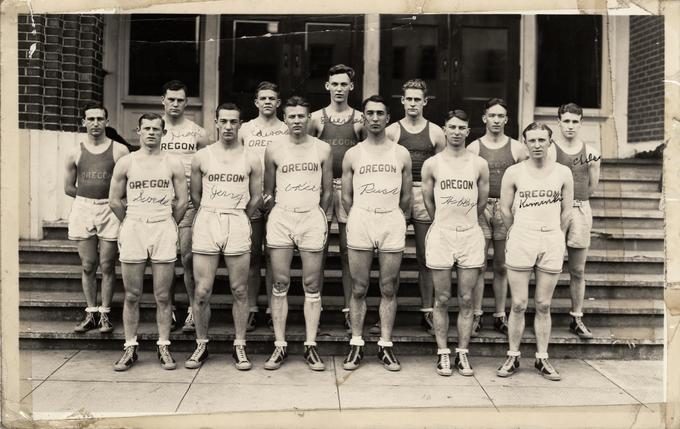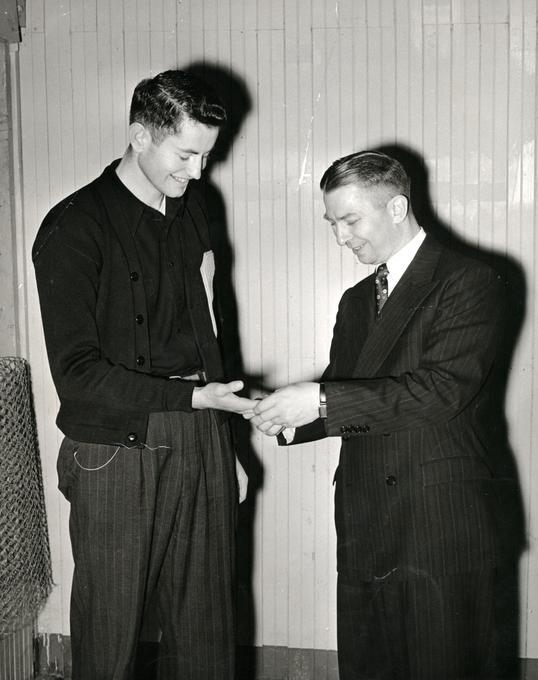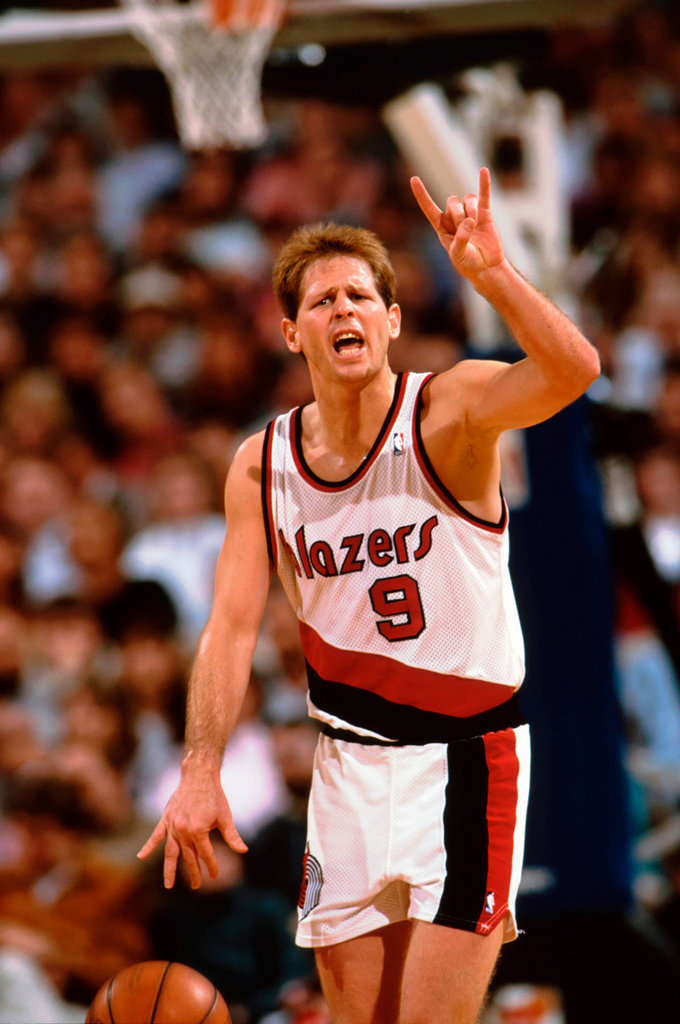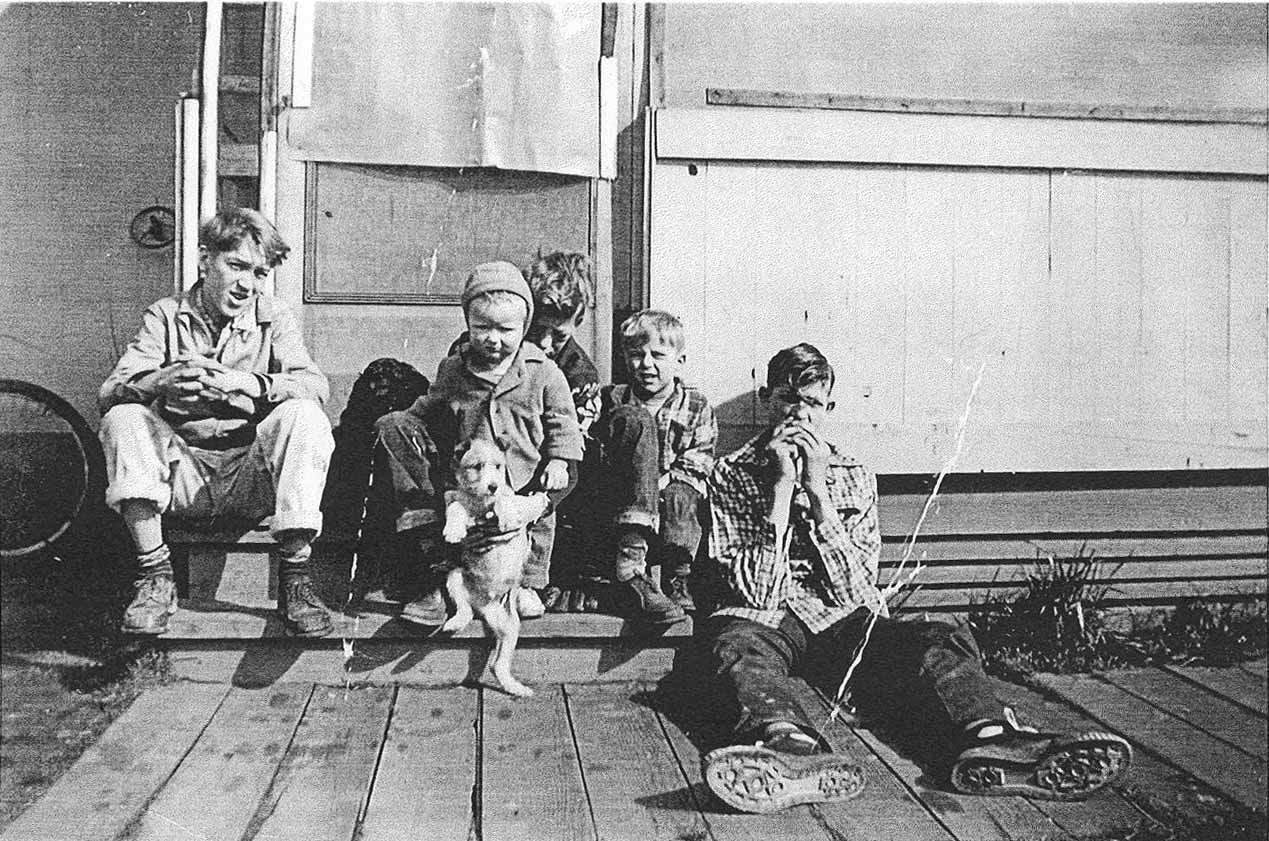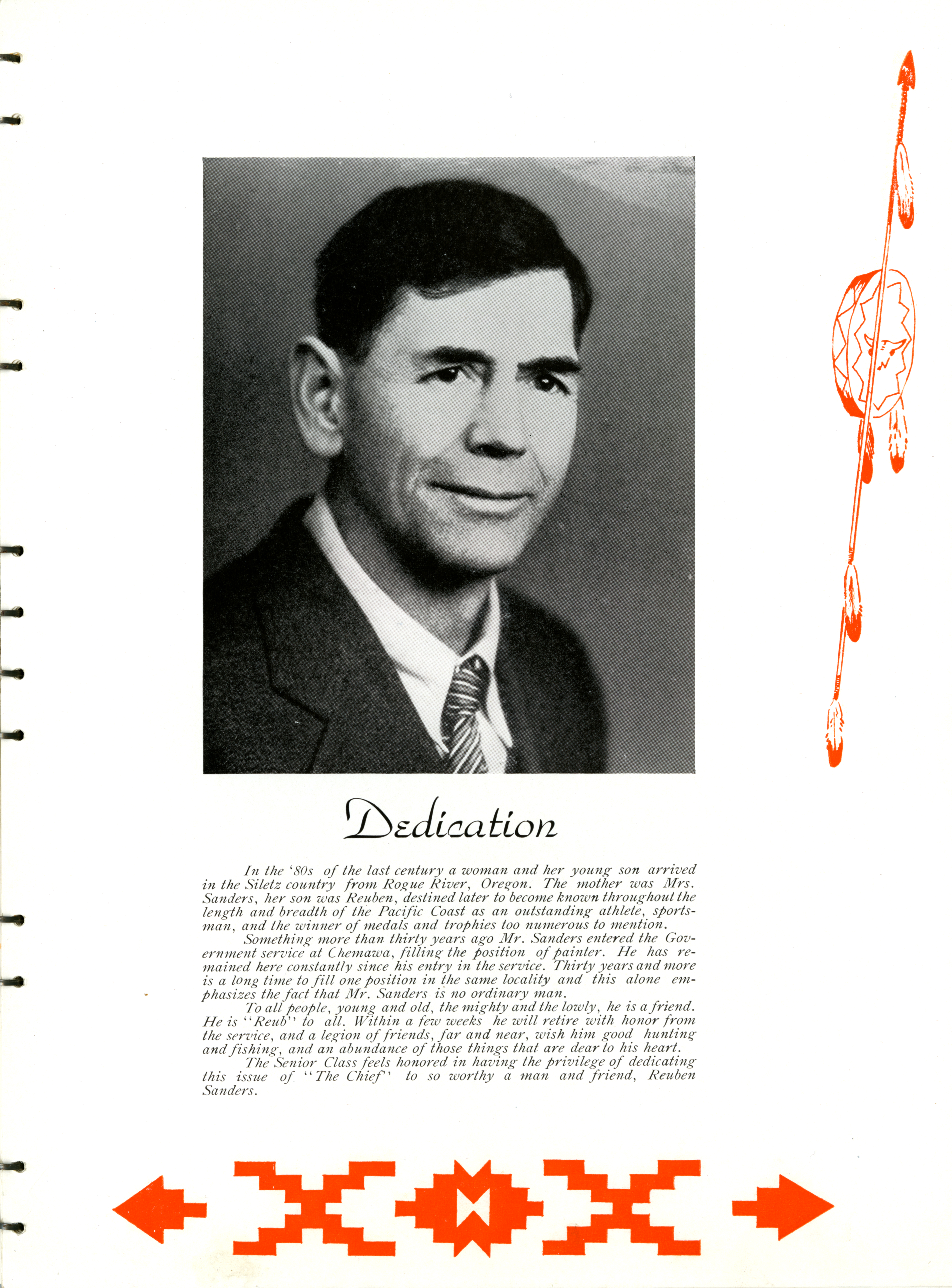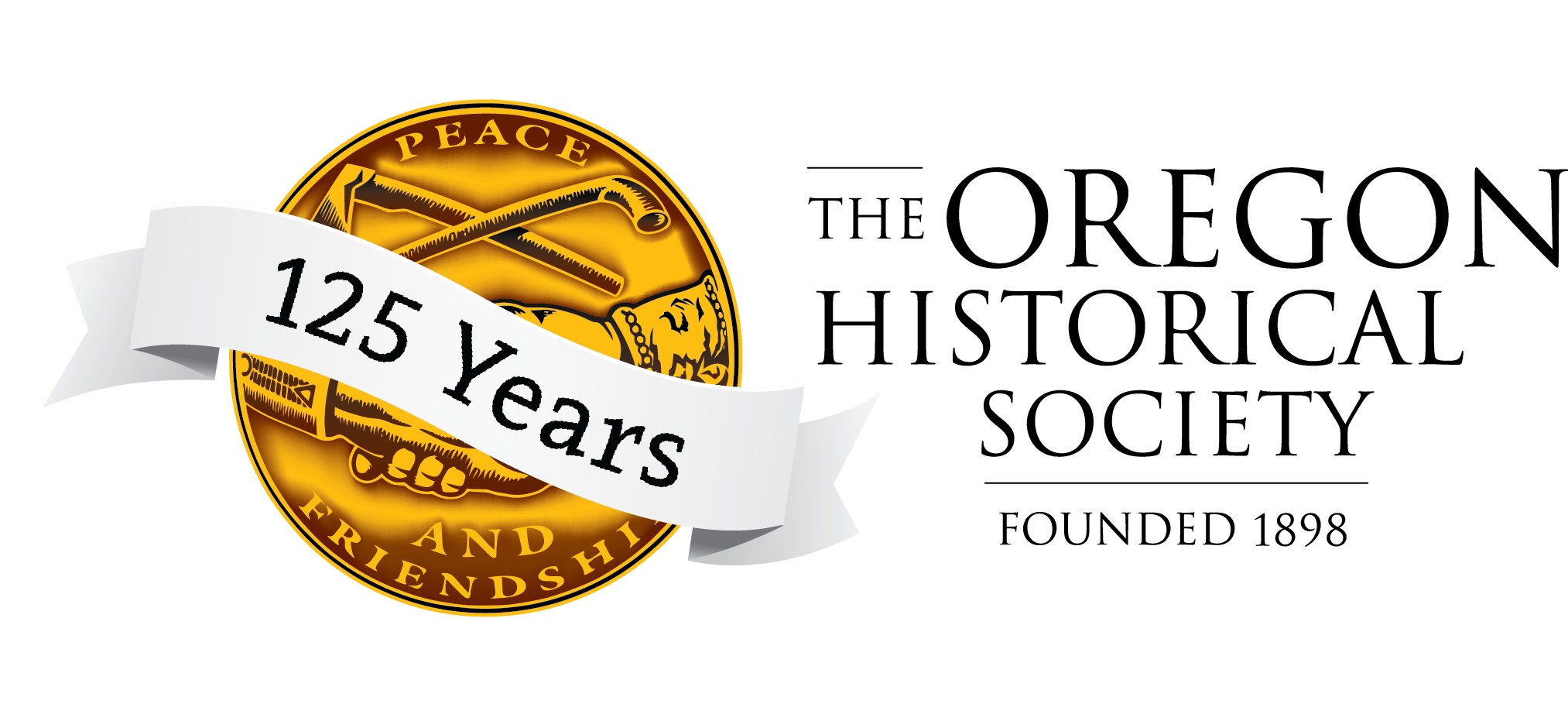Howard Andrew “Hobby” Hobson was a basketball pioneer and innovator who led the University of Oregon's Tall Firs to the 1939 NCAA Championship. Creative and analytical, he found success as a coach at high schools, small colleges, and universities and served on the NCAA Rules Committee and the U.S. Olympic Basketball Committee. His legacy as a basketball strategist and innovator was cemented in 1965 when he was enshrined into the Naismith Memorial Basketball Hall of Fame. He was inducted into the Oregon Sports Hall of Fame in 1980.
Born in Portland on July 4, 1903, Hobson was a star athlete at Franklin High School, where he led the Quakers to the 1921 Oregon high school state basketball championship, tallying six points in the school’s 26-19 win over Salem High. At the University of Oregon, he was captain of the team that won the 1926 northern division basketball championship the year after sharing the title with Oregon Agricultural College (today’s Oregon State University).
Hobson earned a master’s degree from Columbia University in New York in 1929. He returned to Portland in 1930 and began coaching at Portland’s Benson High School, leading the Techmen to two consecutive state tournaments in 1931 and 1932. His teams reached the state semifinals both years.
In 1933, Hobson became head basketball coach at Southern Oregon Normal School (today’s Southern Oregon University) in Ashland. He had immediate success, achieving a 56-14 record over four seasons, including three wins over the University of Oregon. Always an innovator, he became one of the first basketball coaches in the state to recruit talent from outside the area. Hobson also coached football at the school.
The University of Oregon hired Hobson in 1935 to coach both basketball and baseball. He led the Webfoot basketball team to unprecedented heights, keeping binders of statistics to track field goal percentages, rebounds, steals, and other data that informed how games were won or lost. He also pioneered a defense known as the “match-up zone,” which confounded opposing coaches and players because it appeared as if the players were playing one style of defense but quickly shifted to match an offensive move.
An advocate of fast-break basketball, Hobson implemented the strategy effectively. Led by players from small towns in Oregon, including Oakridge, McMinnville, and Astoria, the University of Oregon defeated Ohio State to win the inaugural NCAA national basketball championship in 1939.
Hobson earned his doctorate from Columbia University in 1945, and it was in his doctoral thesis that he advocated for many of the rules used in the sport of basketball today, including widening the free throw lane, adding a shot clock on offense, and adding a three-point field goal. The thesis was published in 1949 as Scientific Basketball: For Coaches, Players, Officials, Spectators, and Sportswriters.
Hobson was the coach at Yale University beginning in 1948. He retired in 1956 and became senior vice president of Ronald Press Publishing in New York. He retired from that position in 1967 and moved to Portland, where he was a regular at Portland Trail Blazers and University of Oregon games. Hobson died on June 9, 1991.
-
![]()
Howard "Hobby" Hobson outside U of O's McArthur Court, 1926.
Courtesy University of Oregon Libraries, PH339_221
-
![]()
The 1925-1926 U of O basketball squad. Hobby is in the front row, second from the right..
Courtesy University of Oregon Libraries, PH339_222
-
![]()
Howard Hobson, right, with one of his players, c.1939.
Courtesy University of Oregon Libraries, A_PERHOB0001_r
Related Entries
-
![Danny Ainge (1959-)]()
Danny Ainge (1959-)
Danny Ainge, one of the greatest athletes in Oregon history, is the onl…
-
![Harvey Wade Halbrook (1933-1988)]()
Harvey Wade Halbrook (1933-1988)
When Harvey Wade “Swede” Halbrook stepped on the basketball court at Or…
-
![Reuben C. Sanders (1876-1957)]()
Reuben C. Sanders (1876-1957)
Reuben “Reub” C. Sanders was one of Oregon’s greatest all-around athlet…
Map This on the Oregon History WayFinder
The Oregon History Wayfinder is an interactive map that identifies significant places, people, and events in Oregon history.
Further Reading
Blakely, Joe. The Tall Firs: The Story of the University of Oregon & the First NCAA Basketball Championship. Wallowa, Ore.: Bear Creek Press, 2004.
Meehan, Brian. “Hobson Kept his Cool while Heating up Basketball.” Portland Oregonian, April 7, 2008.
"Howard Hobson; Basketball Coach and Pioneer was 87." New York Times, June 10, 1991.



